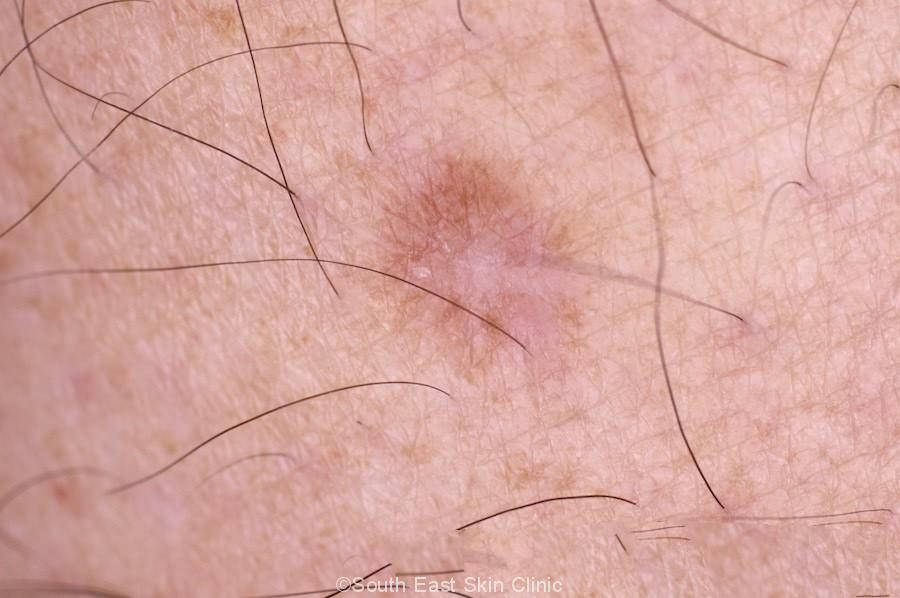
Dermatofibroma South East Skin Clinic blog
Dermatofibromas (DFs) are prevalent cutaneous lesions that most frequently affect young to middle-aged adults, with a slight predominance in females. Clinically, dermatofibromas appear as firm, single or multiple papules/nodules with a relatively smooth surface and predilection for the lower extremities.

Dermatofibroma Stock Image C049/8491 Science Photo Library
Dermatofibroma is a commonly occurring cutaneous entity usually centered within the skin's dermis. Dermatofibromas are referred to as benign fibrous histiocytomas of the skin, superficial/cutaneous benign fibrous histiocytomas, or common fibrous histiocytoma.
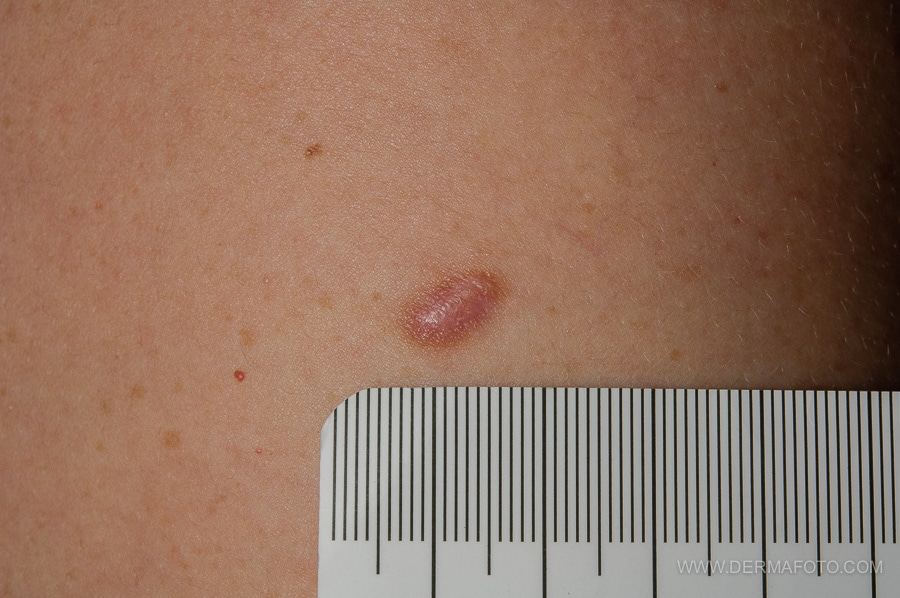
Dermatofibroma Didac Barco
What are dermatofibromas? Dermatofibromas are small, rounded noncancerous growths on the skin. The skin has different layers, including the subcutaneous fat cells, dermis, and epidermis. When.
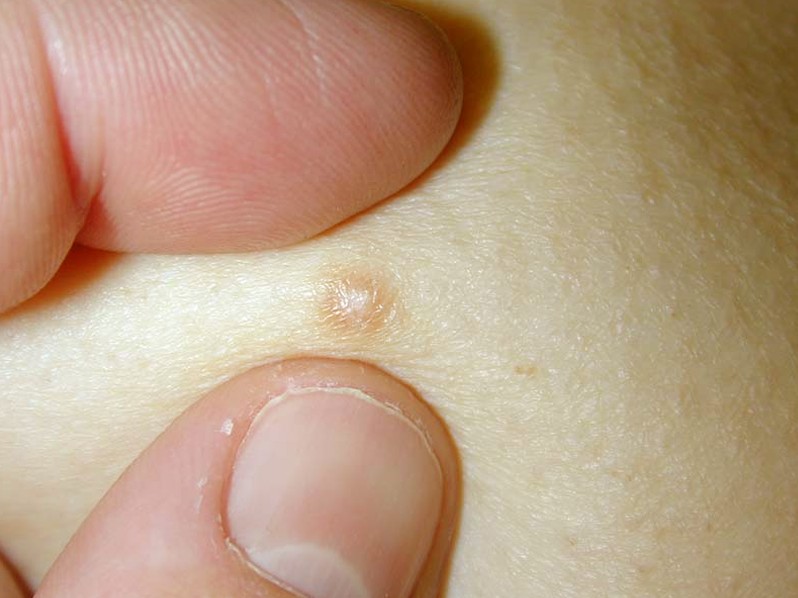
Dermatofibroma Pictures, Removal, Treatment, Symptoms (2018 Updated)
Dermatofibromas are small red-to-brown bumps that result from an accumulation of collagen, which is a protein made by the cells (fibroblasts) that populate the soft tissue under the skin. (See also Overview of Skin Growths .) Dermatofibromas are common among adults and usually appear as single firm bumps, often on the thighs or legs, and.
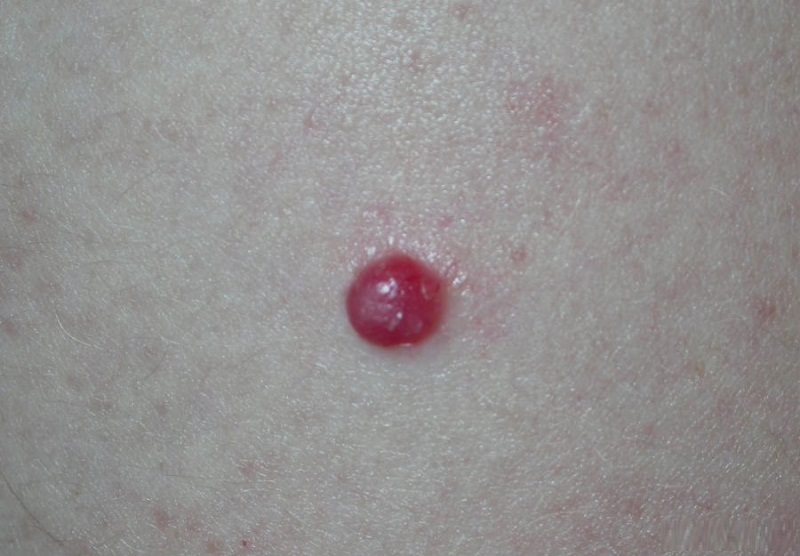
Dermatofibroma Pictures, Removal, Treatment, Causes, Symptoms, Images
Dermatofibroma is a commonly occurring cutaneous entity usually centered within the skin's dermis. Dermatofibromas are referred to as benign fibrous histiocytomas of the skin, superficial/cutaneous benign fibrous histiocytomas, or common fibrous histiocytoma.
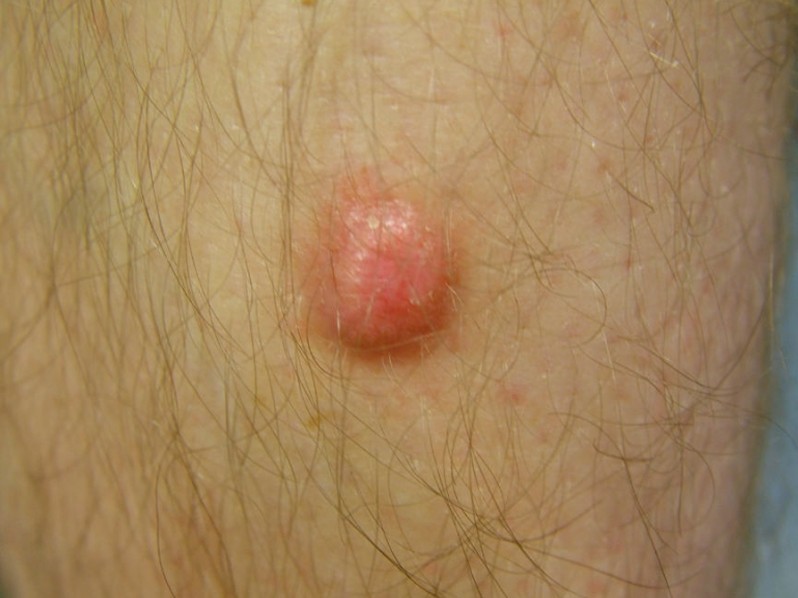
Dermatofibroma Causas, Sintomas e Tratamento Dicas de Saúde
A dermatofibroma, or benign fibrous histiocytomas, is a benign nodule in the skin, typically on the legs, elbows or chest of an adult. [3] It is usually painless. [3] It usually ranges from 0.2cm to 2cm in size but larger examples have been reported. [3] It typically results from mild trauma such as an insect bite. [3]
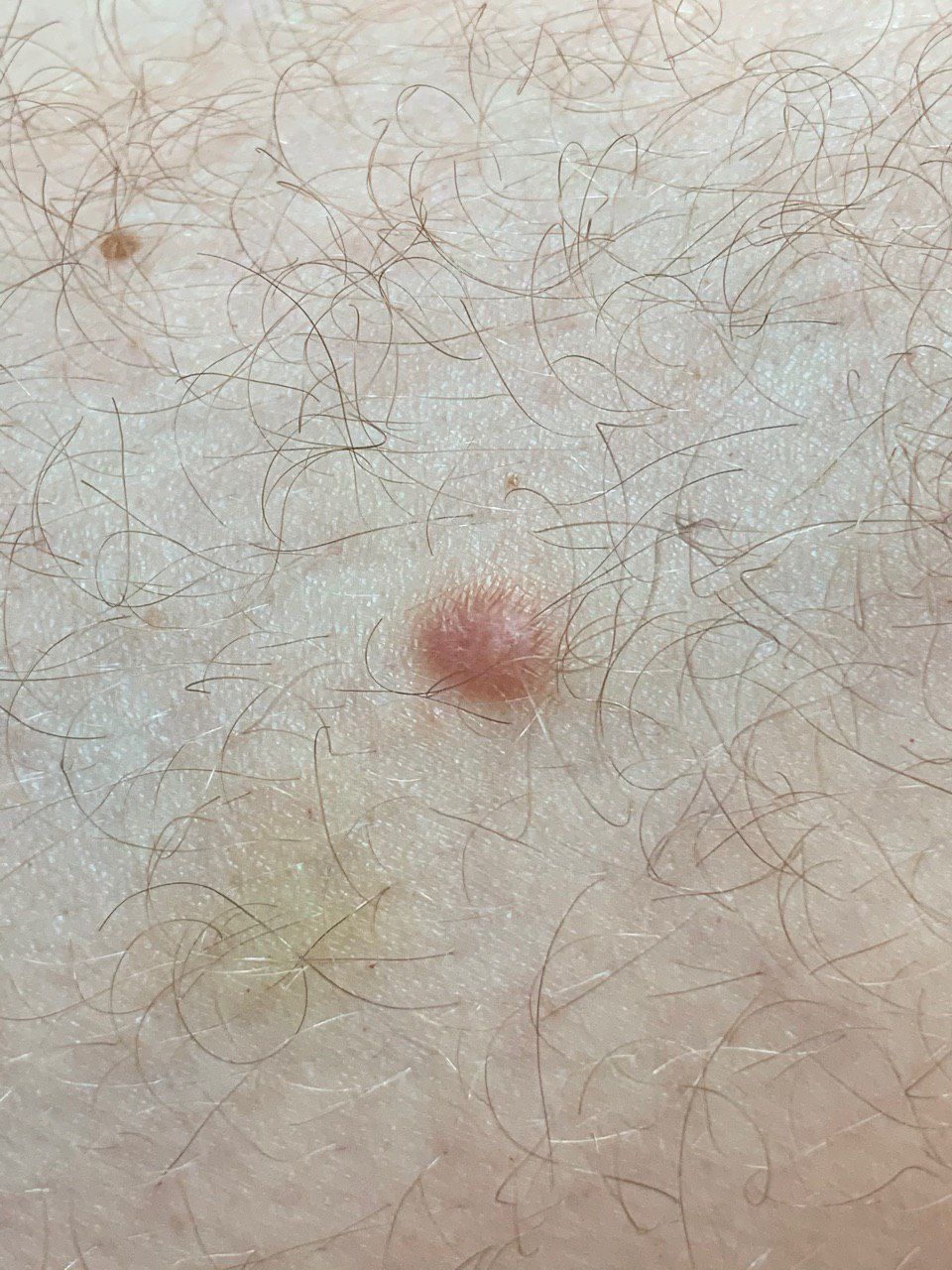
Dermatofibroma (ICD10 D23.9) Skinive Free AI Skin Diagnosis
Several variants of dermatofibroma have been described. They are essentially distinguished by their clinical and histopathological features. To review the mainfeaturesof these variants, a retrospective study of skin biopsies and tissue excisions of dermatofibromasperformed in the dermatology and venereology service at the Hospital Garcia de Orta between May 2007 and April 2012 was carried out.
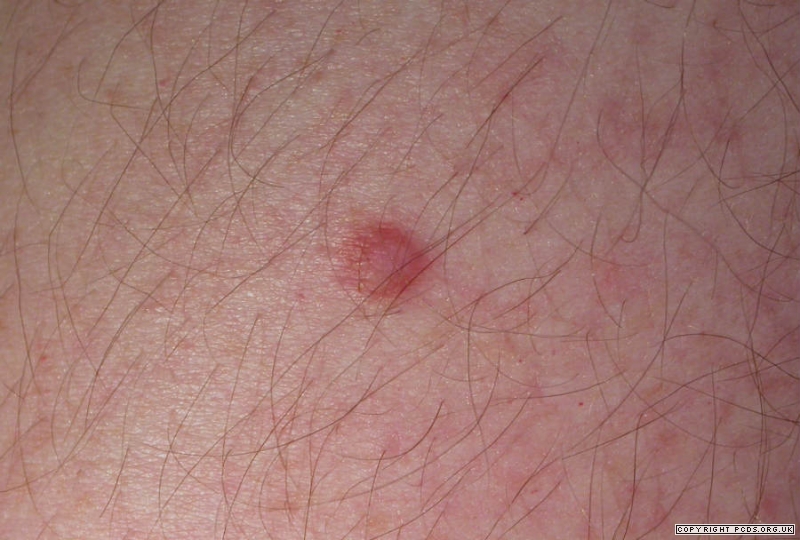
Dermatofibroma South East Skin Clinic blog
Dermatofibroma è il termine medico che indica una categoria di tumori benigni della pelle, che originano dalle cellule dei tessuti connettivi fibrosi del derma. In genere, un dermatofibroma non rappresenta una condizione clinica pericolosa per l'essere umano; tuttavia la sua eventuale insorgenza richiede un adeguato e tempestivo consulto medico.

Dermatofibroma Removal in Toronto Dermatofibroma Treatment
Il dermatofibroma è un accumulo di collagene nel tessuto molle sotto la cute. La sua presenza è una condizione piuttosto comune, ma alcune persone possono sviluppare più dermatofibromi dislocati sul corpo. Dermatofibroma
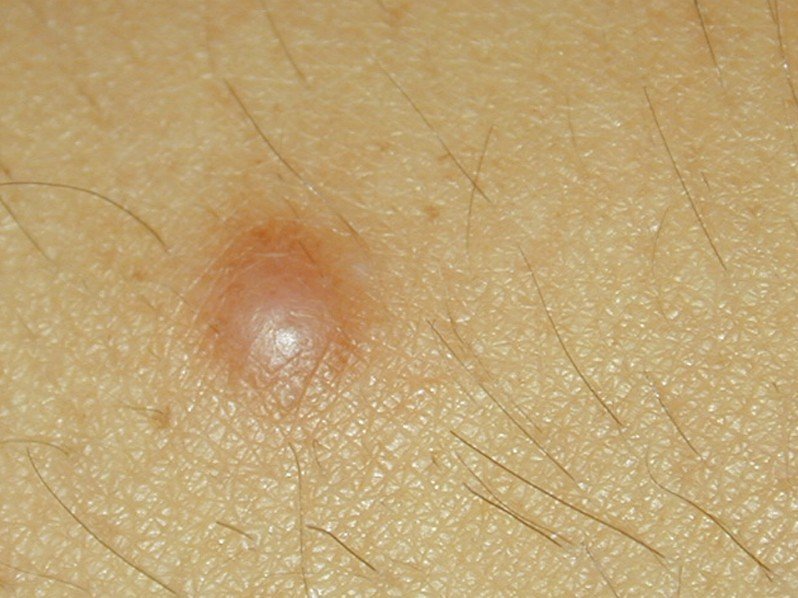
Dermatofibroma Pictures, Removal, Treatment, Symptoms (2018 Updated)
A dermatofibroma is a nodule made of fibrous tissue. When a doctor squeezes the nodule during an examination, the overlying skin dimples. © DermNet New Zealand Causes and risk factors.

Dermatofibroma Dermatología BarcelonaDermatología Barcelona
Dermatofibromas are firm, red-to-brown, small papules or nodules composed of fibroblastic tissue. They usually occur on the thighs or legs but can occur anywhere. Dermatofibroma Image courtesy of Marie Schreiner, PA-C. Dermatofibromas are common among adults, more so in women. Their cause is probably genetic.
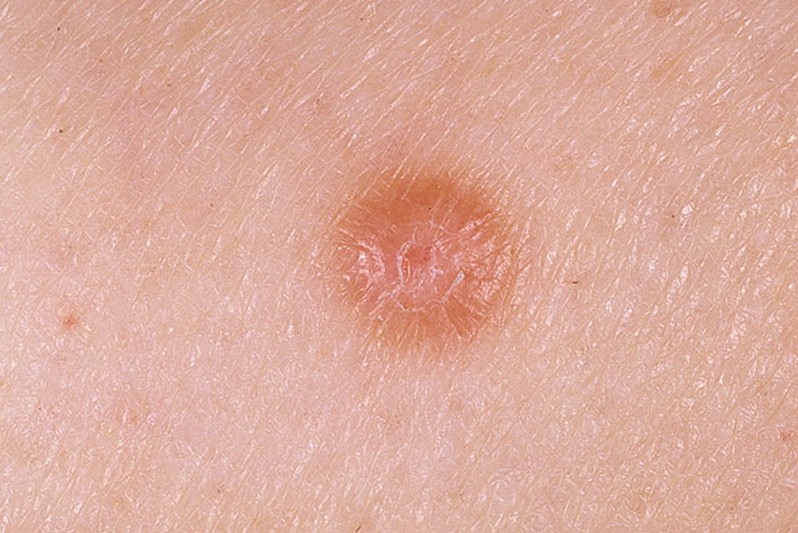
dermatofibroma pictures pictures, photos
Dermatofibroma (superficial benign fibrous histiocytoma) is a common cutaneous nodule of unknown etiology that occurs more often in women. Dermatofibroma frequently develops on the extremities.

Multiple eruptive myxoid dermatofibromas. (a) Clinical appearance of
How is a cellular dermatofibroma diagnosed? To diagnose a cellular dermatofibroma, your healthcare provider starts by looking at the lesion. You may have a skin biopsy to confirm if it's a dermatofibroma or another type of skin lesion. In a skin biopsy, your healthcare provider removes a small tissue sample. They send your tissue sample to a lab.

Dermatofibroma Skin Help
What Is It? Dermatofibromas are small, noncancerous (benign) skin growths that can develop anywhere on the body but most often appear on the lower legs, upper arms or upper back. These nodules are common in adults but are rare in children. They can be pink, gray, red or brown in color and may change color over the years.

Dermatofibroma On Leg
Microscopic presentation of H&E-stained sections of an atrophic dermatofibroma on the right upper back of a 47-year-old man. Low (A) and higher (B) magnification of H&E-stained sections of an atrophic dermatofibroma shows a central depression (between blue arrows), epidermal acanthosis (thickening of the epidermis as shown between black bracket), basilar hyperpigmentation (yellow arrows), and.

O Que é Dermatofibroma e como é seu Tratamento
Il dermatofibroma è un tumore della pelle di natura benigna, piuttosto frequente. Questa neoformazione cutanea è costituita da una proliferazione di fibroblasti con localizzazione nel derma. Il dermatofibroma compare, di solito, in soggetti adulti, soprattutto di sesso femminile, tipicamente intorno ai 20-30 anni di età.